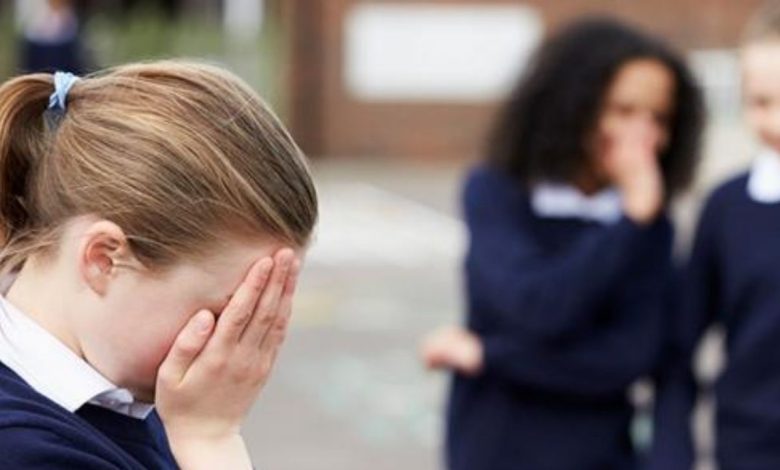Parents warned about sinister implications behind ‘back to school necklace’

Schools are reopening this week and many children are looking forward to returning to the classroom.
But some people fear it. Parents have been warned of ominous phrases gaining attention onTiKTok. This may also be a cry for help.
“Back to school necklace” is a euphemism forsuicideand has been around for years.
More and more communication on social media platforms means that more young people can be reached than ever before.
It’s normal to be nervous about being born prematurely, but some children are very nervous at school because of bullying or other reasons.
Dr. Ariana Hoet, clinical director of On Our Sleeves and pediatric psychologist at Nationwide Children’s Hospital, says that when children refer to phrases such as “back to school necklace,” they don’t necessarily He said he had no intention of doing so.
owever, she responded to Mashable that whether the phrase is used as a joke or not, parents should take it seriously and assess their child’s true feelings. said there was a need.
Dr. Hoet does not deny that children who feel truly desperate or worthless are concerned.
NHS figures show a record number of children and young people awaiting. Mental Health Starting care or receiving treatment in the UK.
February figures reached her 420,314. }
PAPYRUS (Preve Young Suicide Story).
The charity is dedicated to preventing suicide among young people, and 1 in 10 of her teachers said a student had suicidal thoughts more than once in a semester. He said that there is a survey result that it is.
Papyrus, www.papyrus-uk.org0800 068 41 41
Samaritan, www.samaritans.org, 116 123
Childline,www.childline.org.uk, 0800 1111
CALM, www.thecalmzone.net, 0800 585 858
Together, www.headstogether.org.uk
Mind, www.mind.org.uk, 0300 123 3393
How to talk to children about mental health
Asking children is daunting Maybe about their mental health.
However, research shows that asking young people if they have suicidal thoughts can actually reduce their risk of suicide.
PAPYRUS says that when asking children about suicide, they should be as direct as possible.
Use the word suicide (practice first if it helps build confidence) and look your child in the eye when asking “Are you thinking about suicide?” .
Be calm so that the child is not afraid of your reaction.
When it comes to watching your child for signs of depression or suicidal thoughts, consult Dr. Nihara Krause, consultant clinical psychologist and founder of the youth mental health charity Stem4.The signs are not necessarily “
Signs that the child is depressed or suicidal should express sadness or hopelessness.”
They may say things like, “I can’t take it anymore,” or “I’d rather be without you.”
Physically, children may experience social withdrawal, separation from their families, abandonment of possessions, weight loss, changes in sleep and eating habits, and poor concentration. or engage in self-soothing activities such as playing games.
Dr. Krause told The Sun:
“In fact, many people show different symptoms in different settings. The important thing in cases like this is not to discredit them as a result.”
Children’s Mental Health Quiz
Harley Street-based psychotherapist Susan Hepburnpreviously posted the quiz in The Sun to help parents But to the bottom of the child’s heart.
In Susan’s quiz, for each question she only has to choose one out of four answers.
Sum the scores at the end.
Sleep Habits
My child’s sleep habits are severely disrupted. They are experiencing periods of insomnia and need to be constantly awake or sleep excessively (11 hours or more per night). Bedwetting can also be a problem.
- Almost always (4)
- Sometimes (3)
- Rarely (2)
- Never (0)
Mood
There is a clear shift in their mood, consistently low or fluctuating significantly between depression and elation or happiness. They may have trouble concentrating on tasks or lash out unexpectedly.
- Almost always (4)
- Sometimes (3)
- Rarely (2)
- Never (0)
Diet
Irregular eating, anorexia, or overeating have become significant problems for my child. You gain or lose a lot of weight, your diet changes, or you wear baggy clothes. Confidence is definitely related to their weight goal success.
For More Informative articles check out Postsify.com
Almost always (4)
Sometimes (3)
Rarely (2)
Never (0)
Gaming and social media
Me of children spend far more time playing games, social media and interacting with their phones and tablets than they do with family and friends. They have trouble maintaining close friendships or seem very distracted or disinterested in personal communication and instead choose to lock themselves in their rooms.
- Almost always (4)
- Sometimes (3)
- Rarely (2)
- Never (0)
Anxiety
My child is very nervous and overly anxious. They may have unexpected panic attacks about perceived problems or feel agitated to perform basic or social tasks. They may have trouble making decisions or hesitate to leave the house.
- Almost always (4)
- Sometimes (3)
- Rarely (2)
- Never (0)
Want attention
My child is hesitant to seek attention, has little desire for communication, or sacrifices others for attention. They have little consideration for the needs and requirements of others.
- Almost always (4)
- Sometimes (3)
- Rarely (2)
- Never (0)
Habitual or Compulsive
Repetitive or excessive activity adversely affects daily functioning.
These can extend to obsession with food, diet, alcohol, and more.
- Almost always (4)
- Sometimes (3)
- Rarely (2)
- Never (0)
Perfectionism and self-criticism
My child is overly critical of his appearance, mental abilities, or other aspects of his life. They are flaw-focused, visibly distressed by deviations from their desired path, or deeply disappointed in themselves. This really interferes with their daily life.
- Almost always (4)
- Sometimes (3)
- Rarely (2)
- Never (0)
Bullying
Attitudes toward peers, friends, or classmates have changed significantly, or social isolation has become a long-term problem. Either their confidence is incredibly low or despite my assurances my child expresses a belief that they are worthless or unlikely.
- Almost always (4)
- Sometimes (3)
- Rarely (2)
- Never (0)
Losing a loved one1 Separation or Separation
Your child has experienced a traumatic life event, such as the death of a loved one or a divorce or separation in the family. This resulted in noticeable changes in behavior, including withdrawal, anger, and extreme sadness.
- Almost always (4)
- Sometimes (3)
- Rarely (2)
- Never (0)
Results
Under 10: Your child may be worried about something, which can be part of the ups and downs of everyday life. Keep an eye on the situation and consider intervention if these behaviors persist or intensify. If you gave her a rating of 4 for more than one answer, watch these specific behaviors carefully.
11-20: Your child may be having trouble. Talk to them kindly and consider if there are other issues underneath the surface. Seek further advice if you start experiencing more symptoms or if existing symptoms get worse.
Age
owever, she responded to Mashable that whether the phrase is used as a joke or not, parents should take it seriously and assess their child’s true feelings. said there was a need.
Dr. Hoet does not deny that children who feel truly desperate or worthless are concerned.
NHS figures show a record number of children and young people awaiting. Mental Health Starting care or receiving treatment in the UK.
February figures reached her 420,314. }
PAPYRUS (Preve Young Suicide Story).
The charity is dedicated to preventing suicide among young people, and 1 in 10 of her teachers said a student had suicidal thoughts more than once in a semester. He said that there is a survey result that it is.




